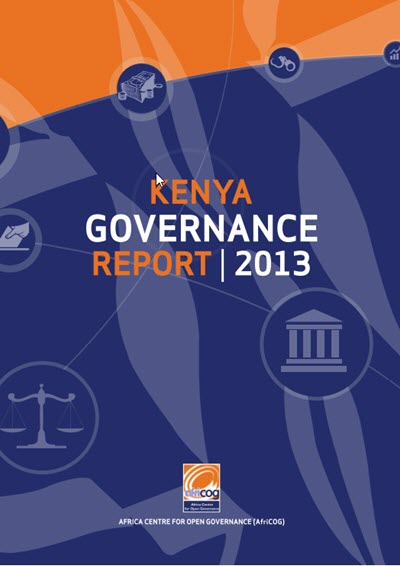The Africa Centre for Open Governance (AfriCOG) is a non- profit organization that addresses the structural causes of corruption and poor governance in Kenya. AfriCOG envisions a country in which citizens and civic institutions are vigilant over public life and actively scrutinise and demand accountability for the management of the politics and economy of Kenya.
Every year, AfriCOG reviews governance challenges and anti-corruption efforts, analyses their implications and makes recommendations. This is the third in the series of AfriCOG’s annual governance reports. Issues arising during this period included those surrounding the conduct of the 2013 general elections and the historic devolution process that followed. Of further concern were attempts to roll back constitutional rights and freedoms, including an attack on the media, efforts to close civic space, and a glaring lack of accountability and transparency in the use of public finances at both national and devolved levels.
The year 2013 was a significant turning point for Kenya’s governance framework. The first elections under the Constitution of Kenya 2010 ushered in a new bicameral legislature, 47 devolved units of government and a comprehensive bill of rights.
However, the elections were marked by weaknesses and corruption, e.g. in the procurement of equipment, and practices thatfailed constitutional standards of transparency, accountability, efficiency and verifiability. Post-election governance brought a claw-back of constitutional gains through the actual and proposed passage of repressive legislation designed to cripple the media and civil society through draconian state regulation. The devolved government, introduced by the Constitution of Kenya 2010 to nsure equitable delivery of services in all regions of the country, has been plagued by corruption, waste, and mismanagement of public funds at county level. This report lays out challenges and opportunities in all these areas in 2013.
